Breast Augmentation in Nepal
Search and Compare the Best Clinics and Doctors at the Lowest Prices for Breast Augmentation in Nepal
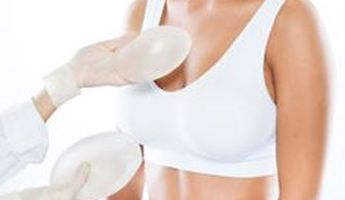
Find the best clinics for Breast Augmentation in Nepal
No clinics available
Hungary offers the best prices Worldwide
Price: $ 208

- Home
- Nepal
Compare Before & After Photos of _procedure_photos.phpBreast Augmentation
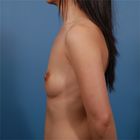

Full-side view
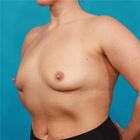
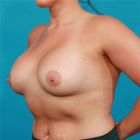
Half-side view
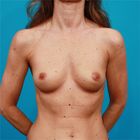
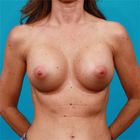
Front view
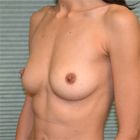
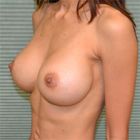
Half-side view
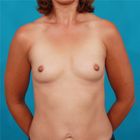
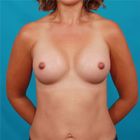
Front view
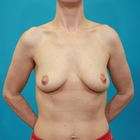
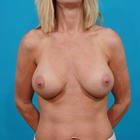
Front view
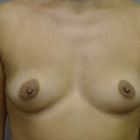
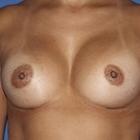
Front view
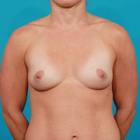
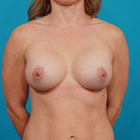
Front view
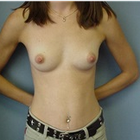
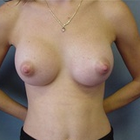
Front view
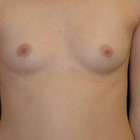
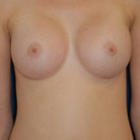
Front view
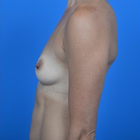
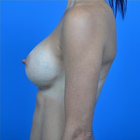
Full-side view
WHY US?
At Medijump, we're making medical easy. You can search, compare, discuss, and book your medical all in one place. We open the door to the best medical providers worldwide, saving you time and energy along the way, and it's all for FREE, no hidden fees, and no price markups guaranteed. So what are you waiting for?

Free

Best Price

Widest Selection

Risk-Free
What you need to know about Breast Augmentation in Nepal

Breast augmentation, also known as a Boob Job or Breast Enlargement, is a surgical procedure aimed at increasing breast size, enhancing shape, or improving symmetry. In Nepal, this procedure is carried out by board-certified plastic surgeons in accredited medical facilities, ensuring both safety and quality.
What is the cost of Breast Augmentation in Nepal?
Prices in Nepal are competitive, often offering savings without compromising on quality, especially when compared to costs in the US or Europe. However, factors such as surgeon’s fees, facility costs, and the type of implants affect the total cost.
What does a Breast Augmentation Procedure Involve?
The surgery involves placing breast implants under the breast tissue or chest muscles. Choices between saline or silicone implants can be made based on the desired feel and appearance. This is something your surgeon will discuss with you prior to even travelling.
How Long Should I Stay in Nepal for a Breast Augmentation Procedure?
The length of stay in Nepal for a Breast Augmentation is subject to various factors, such as your overall health, the specific nature of the procedure, and your individual recovery rate. Generally, Breast Augmentation surgery is an outpatient process, meaning you may be able to return home on the same day. However, a stay of up to two days might be necessary if your procedure is more intricate.
Although the hospital stay is relatively brief, it is advisable to remain in Nepal for at least one-week post-procedure. This timeframe allows for initial recovery and a follow-up appointment with the surgeon. Moreover, in the event of any complications, prompt medical assistance will be accessible. Thorough knowledge of the recovery process and its duration is crucial for proper preparation and managing stress during treatment.
What's the Recovery Time for Breast Augmentation Procedures in Nepal?
Post-surgery, a recovery period of one to two weeks is generally required, with follow-up visits to the surgeon. It's crucial to follow all post-op instructions for optimal healing.
Experiencing swelling and discomfort following the operation is normal, both of which should gradually alleviate with time. You will be required to wear a compression garment, take prescribed medications, and maintain a healthy lifestyle for an effective recovery.
What sort of Aftercare is Required for Breast Augmentation Procedures in Nepal?
Post-operative care is critical for the success of a Breast Augmentation. The initial recovery phase usually includes prescribed medications to alleviate pain and avert infection. Individuals can normally resume everyday activities within a few weeks, depending on their healing pace and bodily responses. However, it is advisable to refrain from vigorous activities for a minimum of six weeks post-procedure.
What's the Success Rate of Breast Augmentation Procedures in Nepal?
In Nepal, Breast Augmentation boasts a relatively high success rate, which contributes to its immense popularity among individuals seeking improvements in their physical appearance. Numerous patients have reported satisfaction and enhanced confidence after undergoing the procedure, making it a widely favoured cosmetic surgery.
Are there Alternatives to Breast Augmentation Procedures in Nepal?
In Nepal, there are several alternatives to the Breast Augmentation. If you're considering breast augmentation strictly for cosmetic reasons and prefer non-surgical options, various suitable methods are available. Alternatives include fat grafting, hormonal therapy, and natural remedies. Fat grafting, also known as fat transfer, involves removing fat from different body parts and injecting it into your breasts. This approach is regarded as safer because it employs the body's tissue, minimizing complications.
What Should You Expect Before and After the Procedure?
Prior to the procedure, your surgeon will discuss your expectations and the anticipated outcomes of your Breast Augmentation. The preoperative consultation comprises an in-depth conversation about your medical history, a physical examination, and an outline of the procedure and postoperative care. Open and candid communication with your healthcare provider is crucial at this stage to ensure the treatment matches your objectives.
Post-procedure, initial swelling and discomfort are normal and can be managed with prescribed medication. It's vital to adhere to your surgeon's post-operative guidelines, which include caring for surgical incisions, taking prescribed medications, and attending follow-up appointments. As swelling subsides and incision lines fade gradually, your enhanced breast profile will become apparent.
Keep in mind that the decision to pursue a Breast Augmentation is deeply personal and should not be made hastily. Allocate time to consider the advantages and drawbacks, and ensure you are well-informed.
What are the Risks and Complications of Breast Augmentation Procedures in Nepal?
As is the case with any surgical intervention, Breast Augmentation comes with its own set of risks and potential complications that need to be considered. These may include infections, bleeding, alterations in nipple or breast sensations, implant leakage or rupture, development of scar tissue, and unsatisfactory outcomes that could necessitate further surgeries.
Some individuals may also encounter complications tied to anesthesia, such as respiratory problems and reactions to medication. The psychological ramifications should not be overlooked, considering surgical procedures can impact mental well-being. An extensive conversation with your healthcare provider about these potential risks remains a key component in making an informed choice.
How to Prepare for Breast Augmentation in Nepal?
Thorough preparation plays a significant role in the success of your Breast Augmentation. Before the surgery, you must have detailed conversations with your surgeon about your medical background, allergies, current medications, and lifestyle habits such as smoking or alcohol consumption. You may need to cease certain medications and habits, including smoking, weeks before the procedure, as they can influence the healing process.
Practical preparations like organizing for someone to be with you on the day of the surgery, scheduling sufficient time off work for recovery, and establishing a comfortable space at home for recuperation can contribute to a smoother post-operative phase. Your surgeon's team will also advise you on pre-operative fasting and hygiene guidelines.
What are some Common Misconceptions about Breast Augmentation?
Despite its widespread popularity, numerous misconceptions surround the Breast Augmentation. One such misconception asserts that breast implants are permanent. In actuality, breast implants may require replacement after 10-15 years, with the specific timeframe depending on individual health and lifestyle factors. Another false assumption is that breast augmentation solely serves vanity purposes. In reality, many patients undergo this procedure following mastectomy or as part of gender-affirming surgery.
A further common myth suggests that breast augmentation hinders breastfeeding. While a few instances might affect breastfeeding, the majority of individuals with breast implants can successfully breastfeed.
Whilst the information presented here has been accurately sourced and verified by a medical professional for its accuracy, it is still advised to consult with your doctor before pursuing a medical treatment at one of the listed medical providers
No Time?
Tell us what you're looking for and we'll reachout to the top clinics all at once
Enquire Now

Popular Procedures in Nepal
Prices Start From $834

Prices Start From $500

Prices Start From $93

Prices Start From $85

Prices Start From $477

Prices Start From $931

Recommended Medical Centers in Nepal for procedures similar to Breast Augmentation

- Interpreter services
- Translation service
- Religious facilities
- Medical records transfer
- Medical travel insurance
- Health insurance coordination
- TV in the room
- Safe in the room
- Phone in the room
- Private rooms for patients available

- Interpreter services
- Translation service
- Religious facilities
- Medical records transfer
- Medical travel insurance
- Health insurance coordination
- TV in the room
- Safe in the room
- Phone in the room
- Private rooms for patients available

- Interpreter services
- Translation service
- Religious facilities
- Medical records transfer
- Medical travel insurance
- Health insurance coordination
- TV in the room
- Safe in the room
- Phone in the room
- Private rooms for patients available

- Interpreter services
- Translation service
- Religious facilities
- Medical records transfer
- Medical travel insurance
- Health insurance coordination
- TV in the room
- Safe in the room
- Phone in the room
- Private rooms for patients available
Breast Augmentation in and around Nepal
Introduction
Nepal is a country in South Asia, sandwiched between India and China. Home to the mighty Mount Everest, this incredible country has diverse landscapes, from the Himalayan Mountains in the north to the sprawling plains in the south. Towering mountains, charming hill villages, golden mountains, and jungle wildlife, Nepal is truly one of the world’s best travel destinations. Beyond its nature and culture, this country is also increasingly popular for its healthcare. With its affordable high-quality medical facilities, Nepal is considered to have immense potential for medical tourism, due to the availability of good infrastructure, highly trained specialists, modern medical equipment, and relatively cheaper medical treatment. In fact, it’s currently the fastest-growing segment of the country’s tourism. Medical tourists coming to Nepal are usually seeking exceptionally high medical treatment at competitive rates. Some of the most sought after procedures are dental treatments, cardiac services, and neurological treatments.
Popular Cities and Regions in Nepal
Kathmandu, the capital and largest city in Nepal, is historic, enticing, spiritual, and vibrant. One of the most famous attractions in the city is the old town, where tourists can find the most popular Tibetan pilgrimage site, the Kathesimbhu Stupa. Another top attraction is Kumari Bahal, which is the home of the Kumari, the girl who is selected to be the town’s living symbol of Devi. Tourists looking to relax in a more laid-back vibe usually go to Pokhara. Stretching along the shore of an idyllic lake, it offers spectacular scenery. It also boasts a thriving adventure-sports industry, from paragliding to paddle boats. Anyone who wants to experience an ancient way of life should visit Bhaktapur, which is filled with artisan weave cloths, amazing cuisine, and beautiful temples.
Transport in Nepal
The main international airport in Nepal is Tribhuvan International Airport, which serves flights to and from numerous cities in Asia, such as Delhi, Hong Kong, and Dubai. Getting around the country can be a challenge, but public transportation is available. Buses are affordable, however, they tend to be overloaded. Tourist buses are the best way to travel around as they are in good condition.
Visas in Nepal
Citizens of India do not need a visa to enter Nepal without restrictions. Citizens of almost all nations, including the US and all EU countries, can obtain a visa on arrival that is valid for up to 90 days. Only holders of passports from 12 countries, need to have a visa in advance.
Weather in Nepal
Nepal has five seasons. Spring starts in March until May, it offers pleasant weather that is not too cold nor too hot. Summer arrives in June and ends in August, bringing hot temperatures of around 28°C. Monsoon from June to September receives rain almost every day. Autumn and pre-winter bring sunny and pleasant weather, while winter can be very cold.
Additional Info
-
Local Currency: Nepali rupee (NPR) is the official currency. 1 USD converts to 115 NPR.
-
Money & Payments: ATMs are available in major cities, such as Kathmandu and Pokhara. Credit cards are accepted in major hotels and restaurants. Tipping is expected.
-
Local Language: The official language is Nepali. English is mainly spoken in tourism areas.
-
Local Culture and Religion: Hinduism and Buddhism coexist in Nepal peacefully. Islam, Kiratism, and Christianity are in the minority.
-
Public Holidays: Some of the most celebrated public holidays are Maha Shivaratri, Buddha Jayanti, Sambidhaan Diwas, and Bhaitika.
Popular Searches
- Plastic Surgery in Thailand
- Dental Implants in Thailand
- Hair Transplant in Thailand
- Breast Augmentation Thailand
- Gastric Sleeve in Thailand
- Gender Reassignment Surgery in Thailand
- Laser Hair Removal in Bangkok
- Botox in Bangkok
- Dermatology in Bangkok
- Breast Augmentation in Bangkok
- Coolsculpting in Bangkok
- Veneers in Turkey
- Hair Transplant in Turkey
- Rhinoplasty in Turkey
- Stem Cell Therapy in Mexico
- Rhinoplasty in Mexico
- Liposuction in Mexico
- Coolsculpting in Tijuana
- Rhinoplasty in Korea
- Scar Removal in Korea
- Gastric Sleeve in Turkey
- Bone Marrow Transplant in India
- Invisalign in Malaysia
- Plastic Surgery in the Dominican Republic
- Tummy Tuck in the Dominican Republic
- Plastic and Cosmetic Surgery in Poland
- Rhinoplasty in Poland
- Hair Implant in Poland
- Dental Implants in Poland
- IVF in Turkey